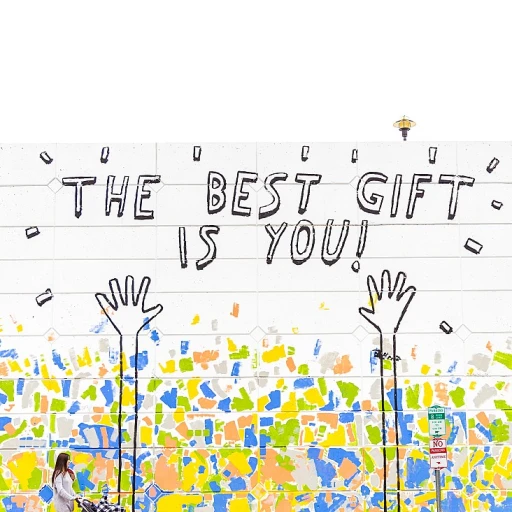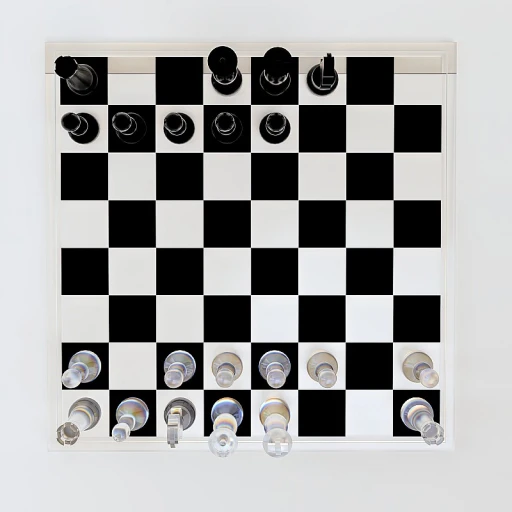Why You Need an HR Interview Portfolio
The Importance of an HR Interview Portfolio
When preparing to ace an HR interview, a well-crafted portfolio could be your secret weapon. Many job seekers often underestimate its significance. Not only does a portfolio provide a structured way to present your skills and accomplishments, but it can also set you apart from other candidates. Prospective employers value candidates who display organization and attention to detail—qualities that a portfolio can effortlessly showcase. The effort you put into curating this vital tool could be the decisive factor in landing your dream job. In a highly competitive job market, demonstrating your enthusiasm and preparedness with a comprehensive portfolio speaks volumes. This collection not only chronicles your professional journey but also indicates your proactive approach to your career. Including an array of documents that highlight your achievements adds credibility and depth to your verbal responses during the interview. Your HR interview portfolio is not just a binder of past successes—it's a dynamic reflection of your personal and professional growth. As you continue to read, you'll gain insights on what to incorporate for maximum impact, how to design it to catch an employer's eye, and how to maintain its relevance over time.What to Include in Your Portfolio
Essential Elements to Incorporate
In the quest to design an impeccable HR interview portfolio, a thoughtful selection of content reflects your professional essence. Understanding what should be featured not only elevates your application but also resonates with potential employers seeking to assess your capabilities. To start, having a well-structured resume is crucial. This document should deliver a concise yet comprehensive overview of your career history, education, and core abilities. It serves as the backbone of your portfolio, providing a snapshot of your professional journey. Next, include detailed descriptions of key projects. Highlight projects that demonstrate your expertise and problem-solving skills. Illustrate your role within these projects, the strategies you employed, and the outcomes achieved. Such narratives underscore your contribution and value to former employers, which prospective HR professionals find very insightful. Moreover, showcase any certifications and pertinent coursework that align with the job you're targeting. These additional credentials serve as evidence of your commitment to professional growth and specialization in HR practices. Additionally, incorporate samples of work-related documents. Depending on your previous roles, this might involve policy documents, training materials, or internal communication samples. These examples provide tangible proof of your competencies and are an excellent way to display your direct impact within your previous positions. Remember to supplement your credentials with letters of recommendation or testimonials. Positive feedback from previous managers, colleagues, or clients not only bolsters your application but also provides external validation of your work ethic and achievements. By judiciously curating these elements, your HR interview portfolio will be thoroughly equipped to make an impact, setting the stage for a compelling presentation during the interview. Keep these components updated and aligned with your career advancements to ensure that your portfolio remains a powerful tool throughout your job search journey. Adjust the details as required when you refine your presentation strategy later in the process.Designing Your Portfolio for Maximum Impact
Creating a Visually Engaging and Professional Portfolio
When preparing a portfolio for your HR job interview, its design plays a crucial role in how it is perceived by potential employers. A well-designed portfolio enhances the presentation of your skills and experiences, making them more appealing and easy to digest. Start with a clean, professional layout that reflects your personal brand. Opt for a consistent color scheme and typography that aligns with the corporate world. Steer clear of overly flashy designs unless you are stepping into a particularly creative HR role. Remember, simplicity often speaks volumes and demonstrates a professional approach. Make effective use of visual elements like charts, graphs, or images that can succinctly highlight your achievements and performance metrics. These elements not only break the monotony of text but also serve as quick attention grabbers during your presentation. Consider using digital tools to create an online version of your portfolio. This can serve as a great complement to your physical presentation, especially in virtual interviews where screen sharing can facilitate a seamless demonstration of your portfolio. Having a digital version also allows easy access for hiring managers, showing your initiative and adaptability in a digitally evolving job market. For more insights into perfecting your HR job interview preparation, visit the comprehensive guide on mastering HR interviews. It provides a step-by-step approach to walking down the path of interview success, equipping you with strategies to present both yourself and your portfolio effectively.Showcasing Your Skills and Achievements
Highlighting Your Unique Skills
When it comes to showcasing your skills and achievements in your HR interview portfolio, the key is to highlight what sets you apart from other candidates. This is your chance to shine a spotlight on your unique abilities and experiences that are relevant to the HR role you are aiming for. Remember to tailor this section of your portfolio to match the specific job requirements and company culture.Success Stories and Accomplishments
A compelling way to showcase your skills is to draw on past experiences and share success stories that demonstrate your capabilities. Use real examples of projects you’ve successfully executed or challenges you’ve overcome in your HR career. Incorporate quantifiable results where possible, as these provide concrete evidence of your achievements. For instance, discuss how you implemented a new recruitment strategy that improved hiring efficiency or detail how your contributions led to a significant increase in employee engagement.Endorsements and Recommendations
Don’t hesitate to include endorsements or recommendations from former employers, colleagues, or clients. Testimonials can serve as powerful affirmations of your professional skills and character. Select quotes or snippets that are specific about your contributions and impact in the workplace. These endorsements lend credibility to your stated skills and can help persuade potential employers of your value as an HR professional.Visual and Creative Presentation
Where appropriate, use visuals to represent your skills and achievements creatively. This might include graphs showing improvement metrics, infographics that detail a process you managed, or slides from a presentation you gave. Visuals can not only make your portfolio more engaging but also make complex information more digestible and memorable for your interviewers. Your task is to curate this section so it effectively tells your professional story and highlights your relevant achievements in HR. Keep in mind the layout and presentation you are finalizing as per the previous section, ensuring it aligns with the overall aesthetic and leaves a lasting impression on your interviewers.Preparing for the Portfolio Interview
When it comes to presenting your HR interview portfolio, preparation is key. This is the moment where all your hard work comes together, and you have the opportunity to showcase your skills and achievements (as discussed previously). To make sure you are ready, you need to familiarize yourself with both the content of your portfolio and the best way to present it.Understand Your Portfolio Inside Out
Before stepping into the interview room, it's crucial that you know your portfolio by heart. This means being able to discuss each section confidently and explain how these documents highlight your qualifications for the HR role. Review your portfolio thoroughly, focusing on the achievements and skills you've highlighted. Be ready to elaborate on any particular project or accomplishment, providing context and demonstrating the specific role you played.Practice Your Presentation Skills
Your portfolio is a tool, but your delivery can make a significant impact. Practice how you will present your portfolio to the interviewers. Consider starting with a brief overview, followed by walking them through some key sections. Practice speaking clearly and confidently; perhaps enlist the help of a friend or mentor to conduct a mock interview.Tailor Your Portfolio Presentation
Always tailor your portfolio presentation to the specific company and role you are applying for. Refer back to the job description to align your experiences and achievements with the skills and qualities they are seeking. Additionally, incorporating company-specific language or values into your presentation can show the interviewers that you are attuned to their culture and needs.Prepare for Questions
During the portfolio presentation, interviewers may ask questions about particular sections or documents. Anticipate potential questions and prepare your responses. Think about how you can further highlight your strengths and competencies or clarify any details they might inquire about. Remember, a well-prepared presentation not only sells your skills but also demonstrates your professionalism and genuine interest in the position. By following these steps, you'll be able to present your HR interview portfolio with confidence and make a lasting impression.Maintaining and Updating Your Portfolio
Keeping Your Portfolio Fresh and Relevant
In the fast-paced world of human resources, staying current is key. Just as the industry evolves, so should your HR interview portfolio. Regularly updating your portfolio ensures that it remains a true reflection of your most recent skills, achievements, and professional growth.
Start by setting a schedule to review your portfolio periodically. This could be quarterly or bi-annually, depending on how often you acquire new skills or take on significant projects. During these reviews, assess each section of your portfolio, from the layout to the content, ensuring everything aligns with your current career goals and the latest industry trends.
When updating your portfolio, consider the feedback you’ve received from past interviews. Reflect on what elements were most impactful and which areas could use improvement. This reflection can guide you in refining your portfolio’s content and presentation.
Remember to incorporate any new certifications, projects, or skills you've acquired since your last update. These additions not only demonstrate your commitment to professional development but also keep your portfolio dynamic and engaging.
Finally, maintaining a digital version of your portfolio can make updates more manageable and allow for easy sharing with potential employers. Digital portfolios also offer the flexibility to tailor your presentation for different job opportunities, highlighting the most relevant experiences for each position.
By regularly maintaining and updating your HR interview portfolio, you ensure that it remains a powerful tool in showcasing your professional journey and capabilities, keeping you ready for any opportunity that comes your way.








